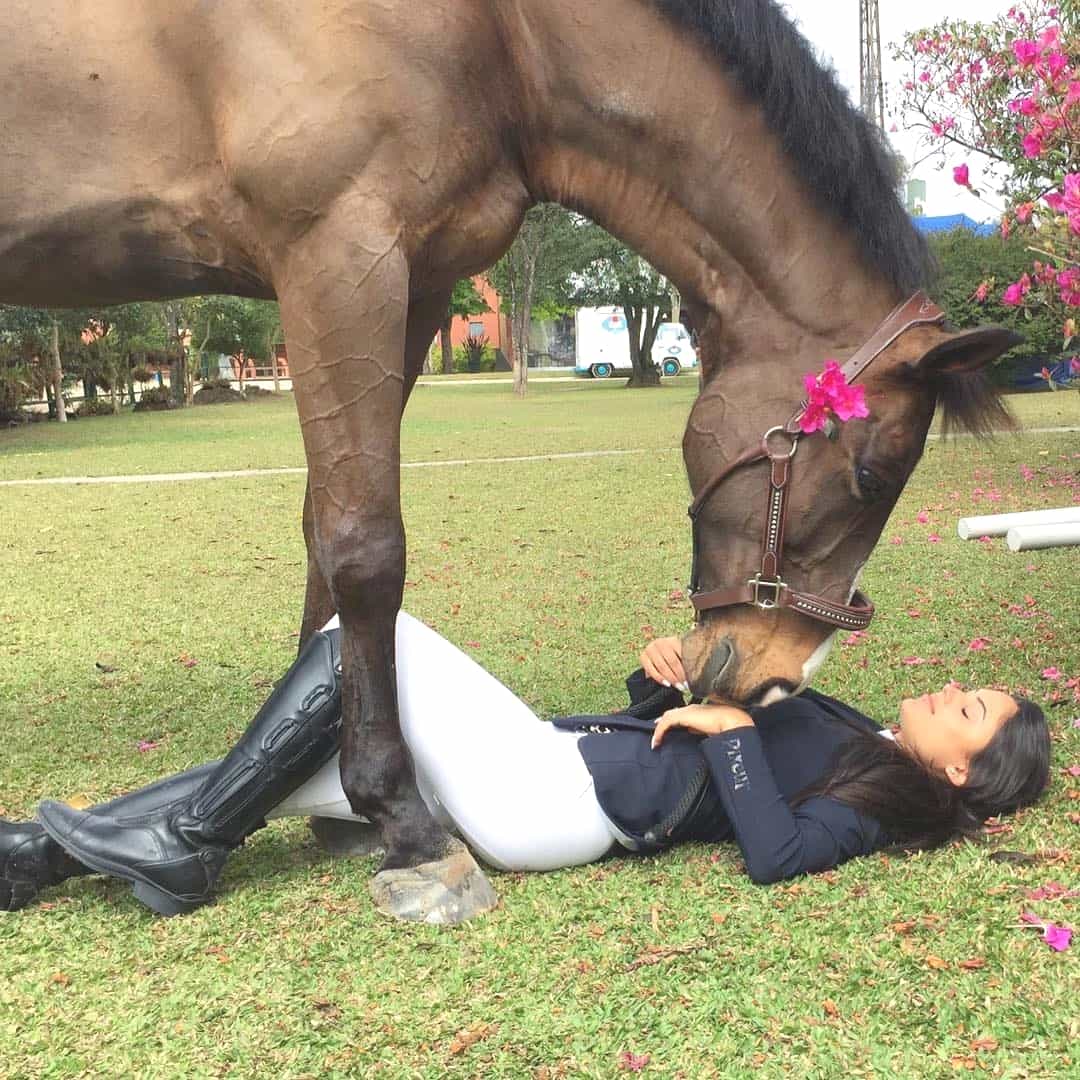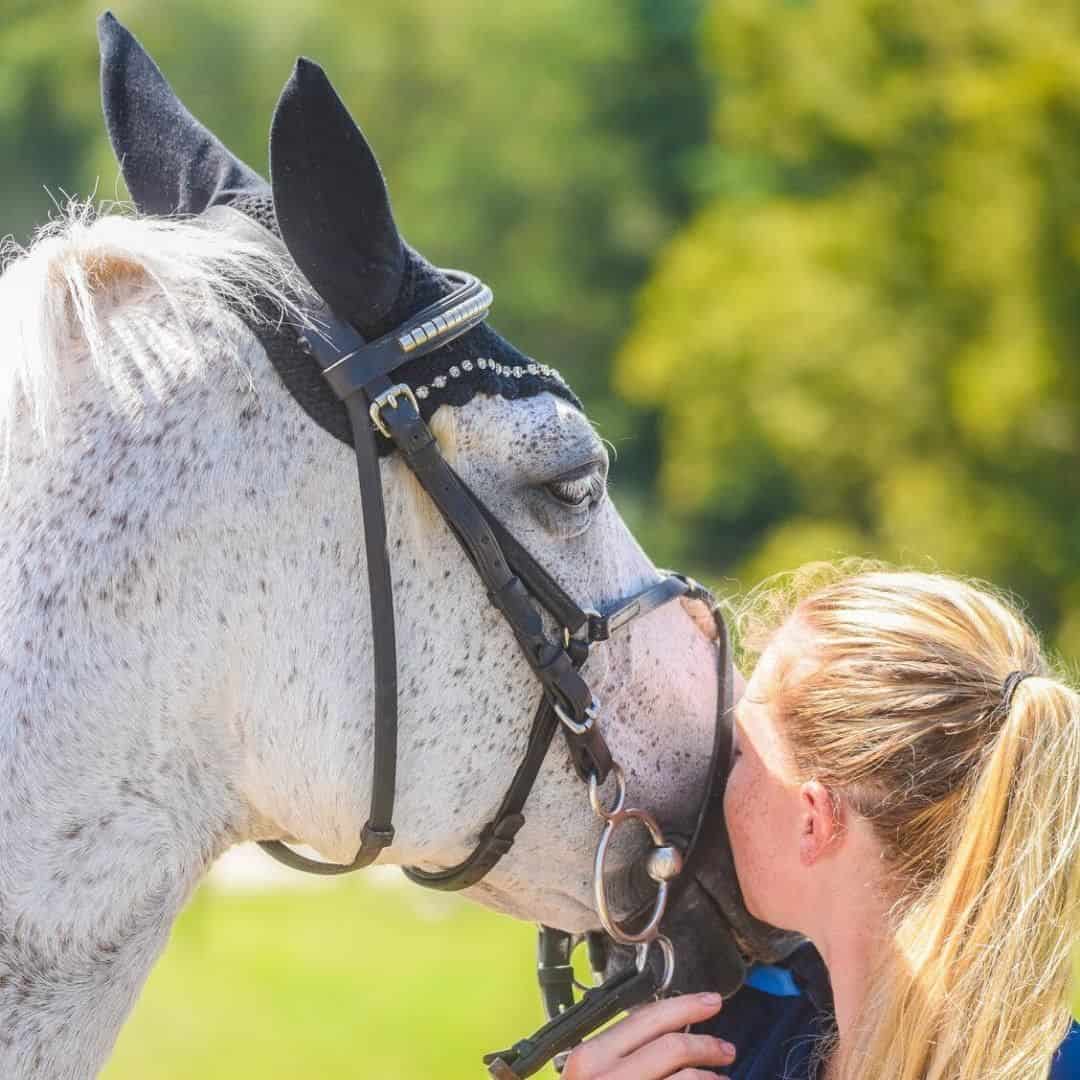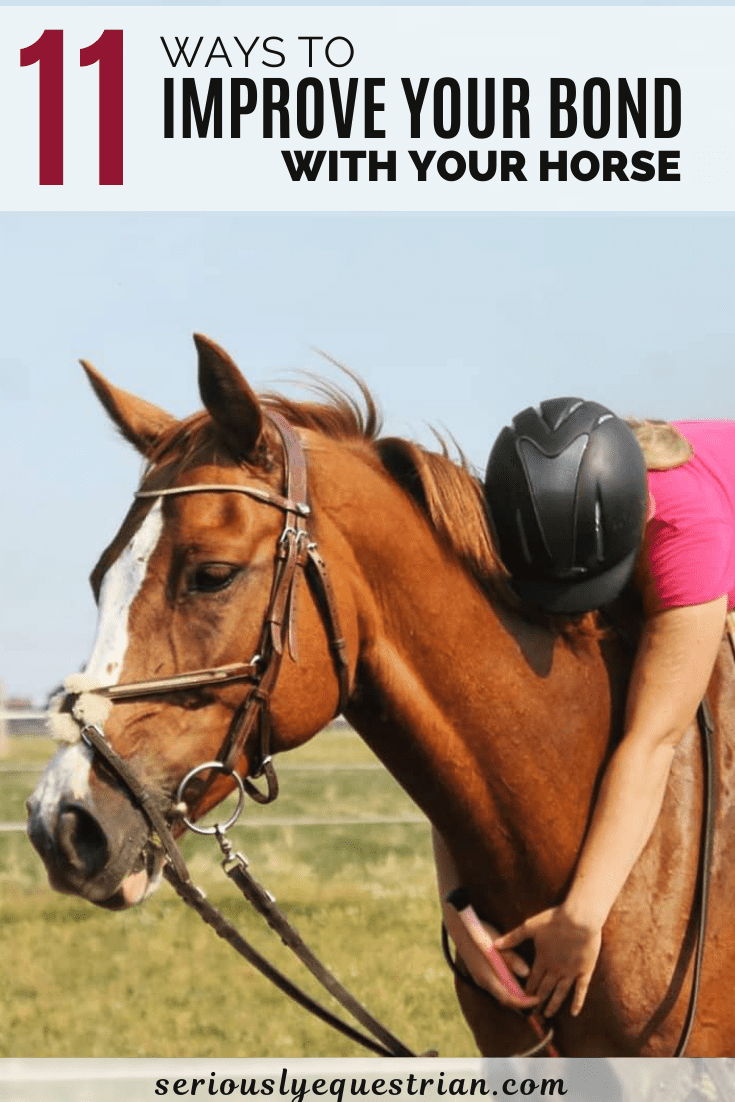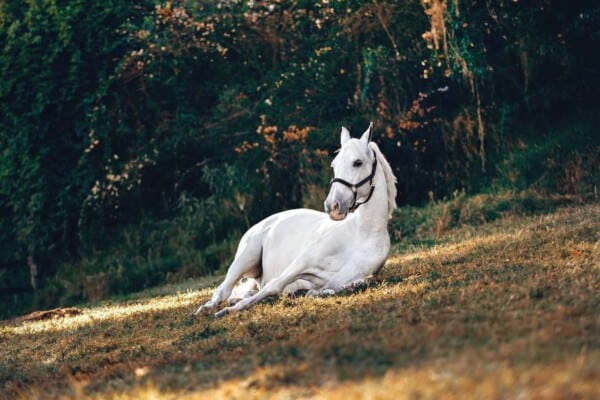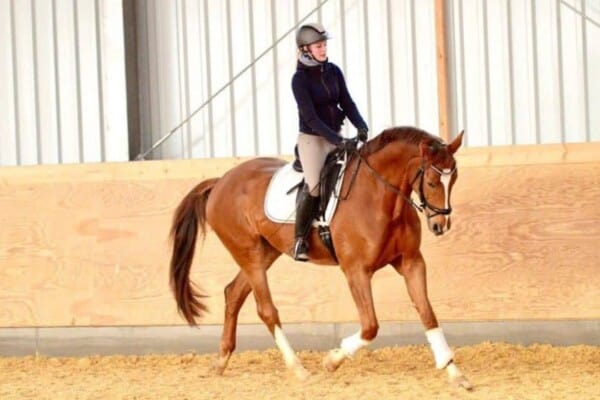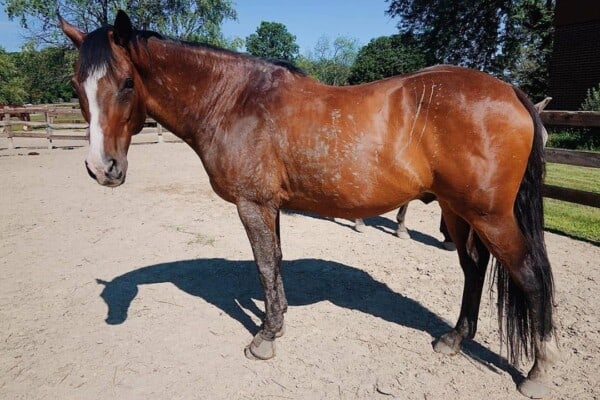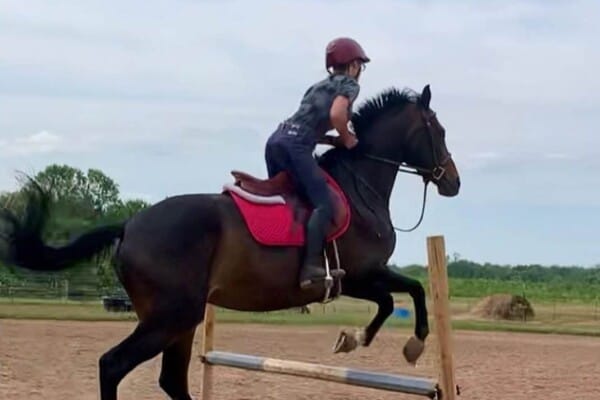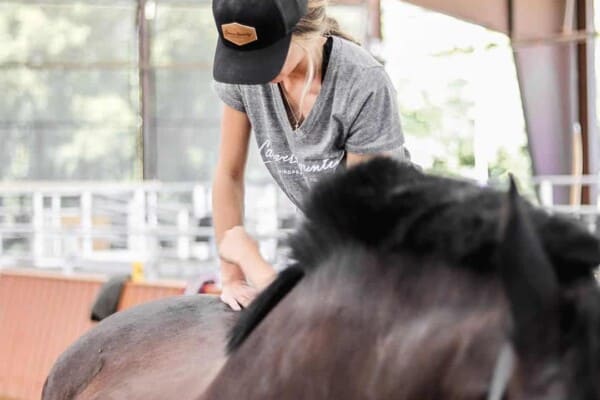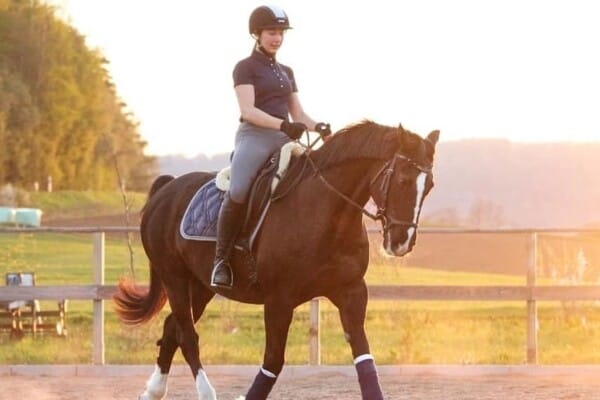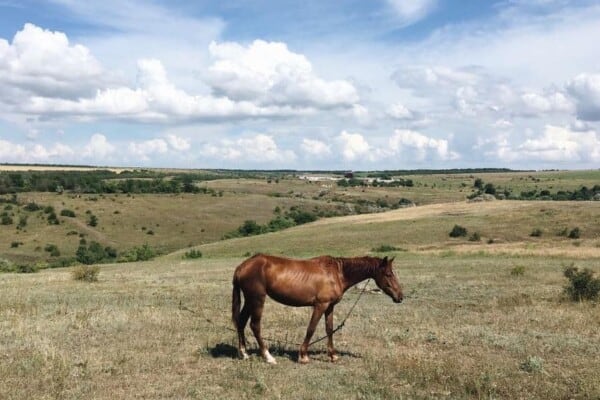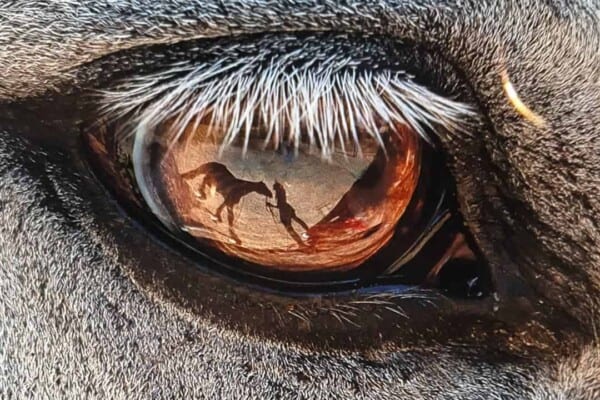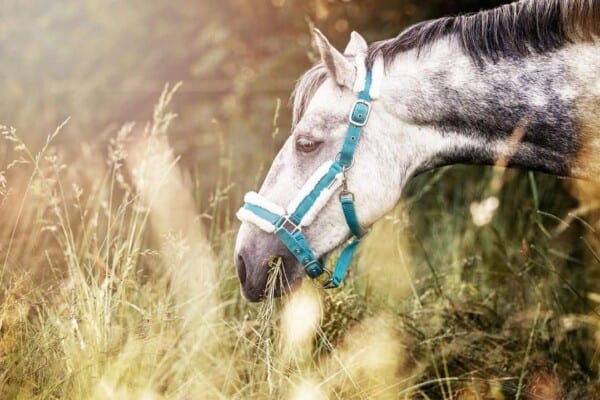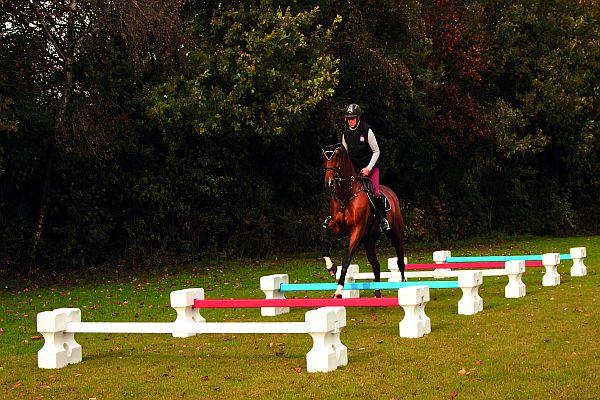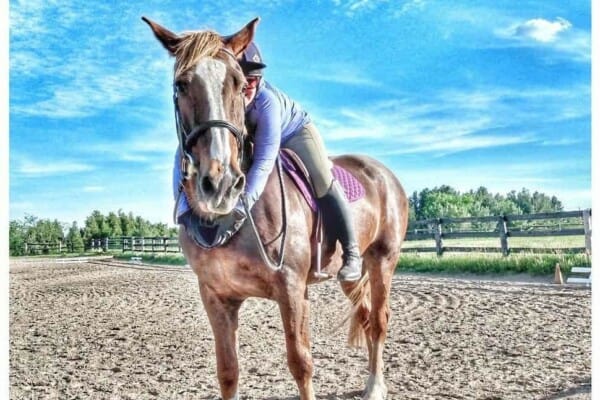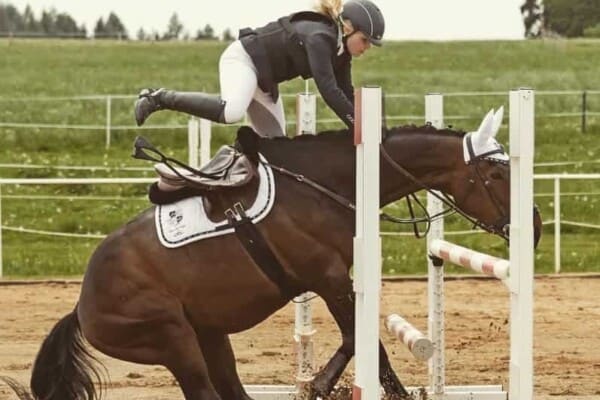One of the best ways to improve your bond with your horse is simply to spend more time with them. This means not just riding but also on the ground. If your horse lives out 24/7 then it can be easy to end up spending less touching time with them than if they were stabled. And there is always so much to do in the yard, it is easy to overlook some not rushed, horse bonding time. Here are 11 ways including activities which you can do with your horse that will really help to develop a deep and mutually rewarding bond:
- Learn through observation – if you talk to an owner who has had their horse several years then they will usually be able to give you chapter and verse about his quirks and foibles. This is because they have observed over time the things that the horse likes and dislikes, what kind of response he has to other horses and what pushes his buttons. Observe your horse in all situations and take the time to learn about his nature
- Respect your horse – as with all things in life, successful and fulfilling relationships are based on mutual respect. The human is the leader as far as the horse is concerned but take care not to dominate. View the horse holistically and not just as a vehicle servicing your goals or ambitions or just as a pleasure conveyance. Allow your horse to live as nature intended with as much free grazing time as possible and with equine companionship
- Listen to your horse – like many animal species, horses have hugely subtle forms of communication which can easily be missed in the hurly-burly of yard life. Read signals, perhaps something that indicates pain, a difference in response. If the horse realizes you are sensitive to his needs and reactions then this will forge a deep bond
- Spend time grooming – this is not just for health and hygiene but to actually discover which parts of the horse he enjoys being touched and which he doesn’t. Like people, all horses have their ticklish areas and places where they love a good rub or massage. Discovering where these ‘sweet spots’ are will help you learn more about your horse. You will know when you have found that special place as the horse will usually swing around and try to indulge in some mutual grooming, the sort of behavior he would enjoy with his pasture mates
- Work from the ground – there is so much schooling and equitation that can be done in hand – time spent on the ground is never wasted. In aggregate, we probably spend more time on the ground with our horses than we do riding and many key activities are ground-based – leading, lunging, loading, travelling, shoeing. Broaden the bond by training in hand; it gives you a chance to see your horse’s expressions and to make eye contact. And the horse needs to respect you as a leader especially when you are dismounted, this is a much-overlooked element of the human/equine relationship
- Learn equine massage techniques – horses are very responsive to touch and therapeutic massage, this a chance to spend peaceful quality time with your horse
- Clicker training or positive reinforcement – this is used for other species as well as horses like dogs. It is based on food rewards timed accurately with an audible ‘click’ from a handheld device. This is to teach and reinforce correct behavior and the things you can teach the horse are largely unlimited. Clicker training can make for great engagement with your horse as well as improving handling and practical tasks such as leading and loading
- Walk your horse – take your horse for a walk, lots of people do this with retired or companion horses or small ponies which they are too large to ride. It’s a great way to share the scenery together and there are usually a lot of training and engagement opportunities which will present themselves along the way. Encountering and passing scary objects will increase your horse’s trust in your and strengthen your bond – the more things you experience together, the deeper you bond will become
- Play with your horse – one great exercise is to set out a hazard and obstacle course for the horse, a bit like the ones that are used to teach police horses. Horses are curious so you can introduce lots of new objects and challenges which are interesting both in terms of what they look like, what they feel like and what they sound like. Some competition riders use these training methods to de-spook sensitive competition horses. This work can be done in hand, under saddle or loose
- Practice horse agility – like dog agility only larger, weaving in and around barrels or cones, stepping over poles, walking through narrow areas, this is a great way to share some fun time together
- Chill together – so much time with horses is spent either riding them or looking after them, probably more time is spent on the latter rather than the former as any horse owner knows. Spend some time out with your horse, take a deck chair and a good book and go and sit in his paddock. He may not necessarily wander over to see you but horses understand the presence of people and will appreciate the level of relaxation and calmness. Just spend time in his company without asking anything of him – do nothing slowly
Bonding with young, nervous or abused horses is always going to take longer and there is no set time limit as to when a horse will take that first step and learn to trust you. It takes as long as it takes. Some horses are more extrovert in their character, others the total opposite. All horses are herd animals but some seem to be more naturally isolated than others and some more aloof to human contact. Respect your horse’s nature and character – they are all different just like we are.

